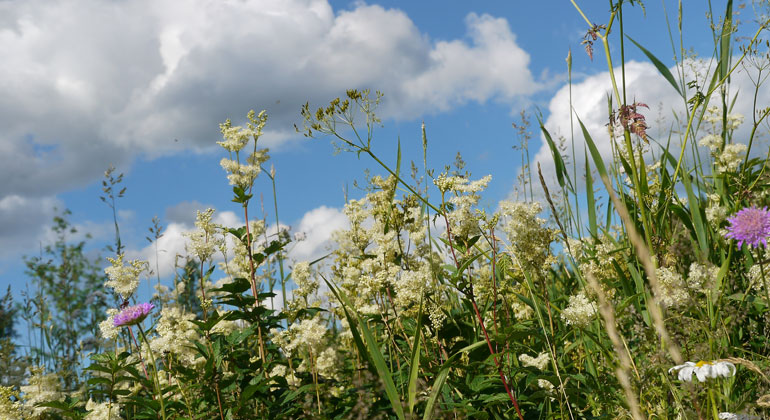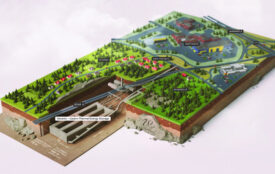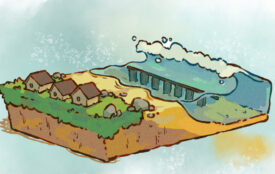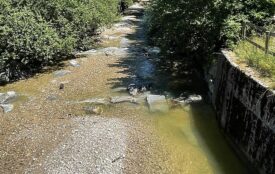Green diversity instead of grey cement
Worldwide, the loss of biodiversity has taken on dramatic forms. But the economy and society are in many ways dependent on intact nature.
With the new LIFE BooGI-BOP project, seven European partners are supporting companies throughout Europe in the biodiversity-oriented design of business premises in order to contribute to the protection of species.
The economic value of biodiversity and the ecosystem services, on which our livelihoods and economies are based, can hardly be quantified. Nevertheless, the loss of species among plants, animals, microorganisms and in particular insects is progressing threateningly. In recent decades, agriculture has become more intensive, large parts of Europe have been urbanised and fragmented by an increasingly dense transport network. Many areas in Europe are unnatural areas with little space for flora and fauna. Human well-being has also receded into the background in favour of functional aspects. For city residents, there are fewer and fewer intact and ecologically balanced places for recreation.
Seven European partners from Austria, Germany, Slovakia and Spain have joined forces in the project EU LIFE BooGI-BOP “Boosting Urban Green Infrastructure through Biodiversity-Oriented Design of Business Premises”, launched in 2018 and funded by the EU LIFE Programme. They want to promote biodiversity-oriented premises as a measure for the protection and strengthening of biodiversity. “The biodiversity-oriented design of premises is a pragmatic approach for companies of all sizes, social institutions and municipalities to contribute to the protection of biodiversity, especially in densely populated regions,” says Sven Schulz, project coordinator at the Lake Constance Foundation. “In the European and national biodiversity strategies, companies are directly called upon to make their contribution to the protection of biodiversity. For companies, biodiversity areas are an obvious and illustrative measure to position themselves well in this respect,” adds Thomas Schaefer, project manager at Global Nature Fund.
Added value for people and nature
Many companies have areas that can become valuable habitats for animal and plant species through simple measures or more comprehensive redesign, from insect-friendly flowering areas to green roofs. Such biodiversity-oriented areas can be gradually linked to form a larger biotope network. This counteracts the ongoing fragmentation of habitats and strengthens green infrastructures in Europe. People also benefit from the diverse design of company premises. “Benefit- and demand-oriented structures and a variety of location types can lead to a higher quality of stay for employees, a good working atmosphere and positive connectivity. The quality of the working environment will become increasingly important in the future” says Anton Robl, project partner at the Institute of Life-based Architecture. For companies, a biodiversity-oriented area can also be the key to incorporating sustainable strategies into decision making, management, and not least health management.
The partners of the LIFE BooGI-BOP project offer companies of various sizes, municipalities and social institutions professional advice on measures to promote biodiversity on company premises and support them in their implementation. For companies with many locations, the project partners develop a “toolbox” with standardised design alternatives, maintenance schemes and tendering procedures. Architects, planners, gardeners and facility managers can also participate in the project and benefit from various offers. Biodiversity-oriented design can become a unique selling point for them. At the end of the project, a Europe-wide structure of experts will be set up to continue and develop the activities initiated within the framework of the project.
Interested companies can inform themselves on the website of the project and contact the project partners of the different countries. Further information: www.biodiversity-premises.eu








